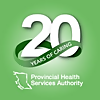Dietitian Ii, Eating Disorders - Vancouver, Canada - PHSA
Description
Dietitian II, Eating Disorders - Looking Glass Team, Woodstone Residence
BC Children's Hospital
Vancouver BC
The Dietitian applies advanced knowledge and skill to assess, plan, implement and evaluate nutrition goals and care plans for children youth and young adults with eating disorders according to best practices which may include cognitive behavioural therapy (CBT) motivational enhancement therapy (MET) and food-related experiential strategies.
Provides individual, family and group counselling to normalize the eating experience where commonly there is a strong drive to maintain the disordered eating/food issues and pursue unhealthy weight and shape, and the consequences of this psychopathology is increased chronicity and medical risk.
Acts as a resource to community health care professionals on the appropriate nutritional management of this population group, provides teaching and develops education resources, participates in nutrition research, ongoing quality assurance and risk management programs.
What you'll do
- Conduct comprehensive nutritional assessments utilizing advanced knowledge and expertise of the medical risks and psychopathology of children, adolescents and young adults with eating disorders by maintaining awareness of the significant increased risk or mortality including high suicide risks, and ensuring nutritional assessments include the history of the eating disorder such as binging, purging, starvation, and exercise patterns and physical nutritional assessments include anthropometric measurements and assessment of risk for refeeding syndrome.
- Develop and implement individual nutrition care plans based upon comprehensive assessments, utilizing appropriate standards and guidelines, and incorporating individual patient/resident's lifecycle stages, culture, and religion to ensure nutritional requirements are met.
- Provide comprehensive individual, family and group counselling to normalize the eating experience by methods such as determining the appropriate counselling methods including cognitive behavioral therapy to identify dysfunctional thoughts regarding food, body image and exercise to support them with the process of change; motivational enhancement therapy for eliciting behaviour change by helping patients/residents to explore and resolve ambivalence; and food related experientials such as progressive responsibility in menu choices, cooking group, and restaurant group.
- Manage and monitor the patient/resident response to the nutritional care plan by focusing on issues of disordered thoughts and feelings around food, eating and body image utilizing an advanced understanding of the psychopathology behind the eating disorder, transference, countertransference and boundary issues; monitoring menus to minimize dysfunctional eating behaviours and challenging patients/residents with new practices to achieve normalization of eating behaviours; and reviewing and adjusting the patient/resident menu selections in order to meet individual goals.
- Provide patients/residents and families instruction regarding how to manage the patient/resident's response to the nutrition care plan and their ability to meet goals as inpatients and while transitioning back to the community/home by giving information, providing resource material, answering questions on topics such as limit setting, and modeling appropriate eating behaviours for patients/residents and their parents.
What you bring
- Graduation from an academic program in dietetics approved by the College of Dietitians of British Columbia.
- Three (3) years recent, related clinical experience working with the designated patient/resident population within the program (Adult or Child and Youth) with disordered eating plus additional eating disorders or nutrition counselling training (such as the eating disorders boot camp training workshop for professionals, counselling psychology, accredited advanced intensive nutrition counseling course) or an equivalent combination of education, training and experience.
- Full registration in the College of Dietitians of British Columbia.
You also have:
- Knowledge of clinical nutrition theory and practice in health and disease.
- Knowledge of the standards of practice and guidelines for clinical practitioners established by the College of Dietitians of B.C.
- Knowledge of disordered eating and its effects on nutrition, body composition metabolic parameters, psychopathology, behaviour, including risks of refeeding syndrome, its prevention and treatment.
- Knowledge of counselling strategies such as CBT, and MET and their utilization in the Eating Disorders population.
- Knowledge of community and professional resources in Eating Disorders.
- Ability to design, implement and monitor age appropriate therapeutic diets delivered via oral and enteral routes.
- Ability to develop and implement nutrition standards of care, guidelines and protocols in relation to eating disorders treatment moda
More jobs from PHSA
-
Consultant, Disability Management
Vancouver, Canada - 2 days ago
-
Data Analyst Health Surveillance
Vancouver, Canada - 1 week ago
-
Director, Professional Practice
Vancouver, Canada - 1 week ago
-
Indigenous Patient Navigator
Vancouver, Canada - 1 week ago
-
Administrative Assistant 2, Bc Transplant Society
Vancouver, Canada - 4 days ago
-
Manager, Regional Clinic
Victoria, Canada - 1 day ago

